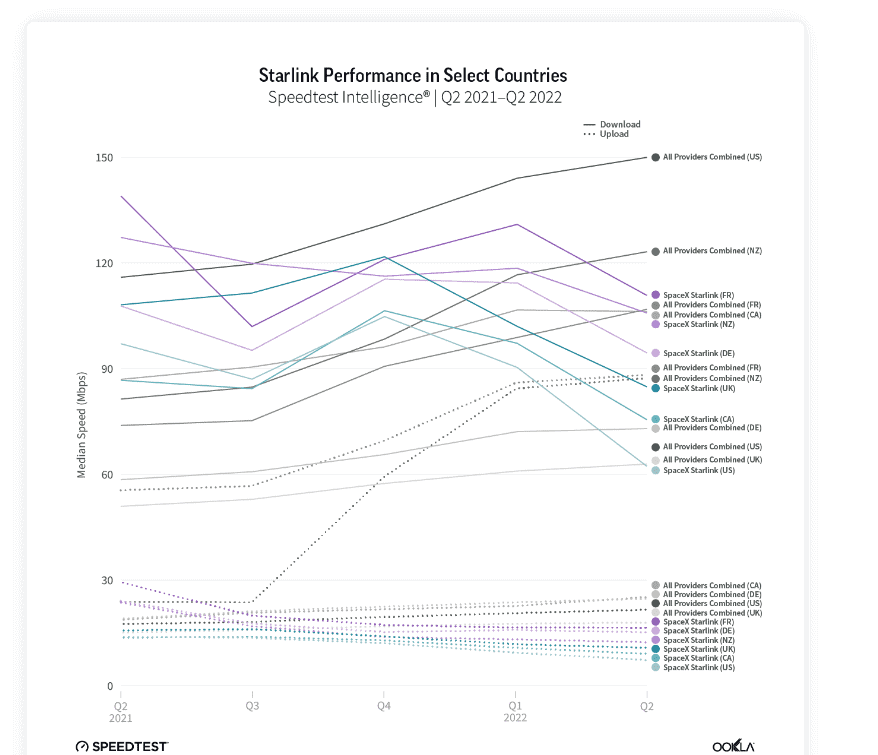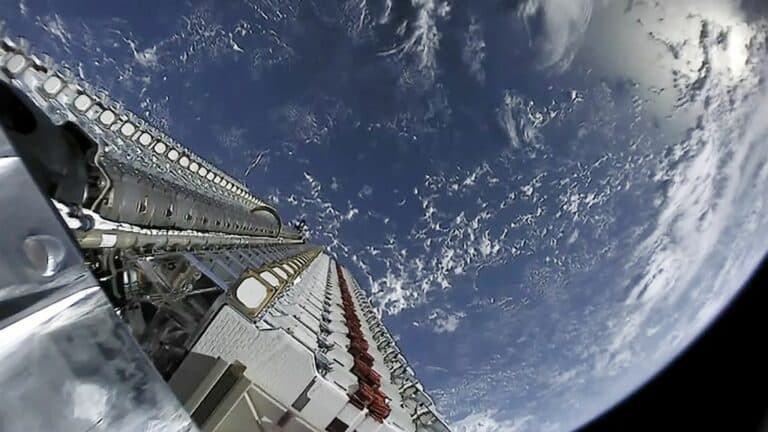Research by Ookla indicates that the average broadband speed of SpaceX’s Starlink satellite internet service has recently dropped. Despite the decline, performance remains strong in comparison to competing services.
Starlink’s average download and upload speed has dropped in all measured countries over the past year, according to a recent survey by Ookla. The latency of most countries was unchanged. Ookla only noted a significant latency increase in New Zealand.
In the United States, the average download speed of SpaceX’s satellite internet dropped from 90.6 Mbps to 62.5 Mbps. Upload declined from 9.3 Mbps to 7.2 Mbps. Latency went up from 43 milliseconds (ms) to 48 ms, but researchers described the change as insignificant. Speeds in other countries dropped as well, including the United Kingdom, New Zealand, France and Germany.

More users
According to the researchers, the speeds likely dropped due to the satellite service’s increased popularity and userbase. Nevertheless, the current average download speed of more than 60 Mbps in the US is sufficient to use one device for all internet services, including video and audio streaming, game downloads and video calls. Performance remains higher than services from competitors like Viasat and HughesNet, which have lower speeds and higher latencies, Ookla said.
FCC denies grant
The network’s lower speed may have been the reason for US telecom regulator FCC’s recent refusal to issue Starlink a subsidy. The satellite internet company had applied to the FCC for a €918 million ($886 million) grant to invest in broadband. The regulator refused because it doubted that Starlink could achieve the 100 Mbps download and 20 Mbps upload speeds required for the grant.
Starlink has since asked the FCC to reconsider its decision and grant the funds nonetheless. According to the satellite internet company, the regulator based the decision on dated figures. Furthermore, Starlink said its network speed will rise because of the launch of new satellites.
